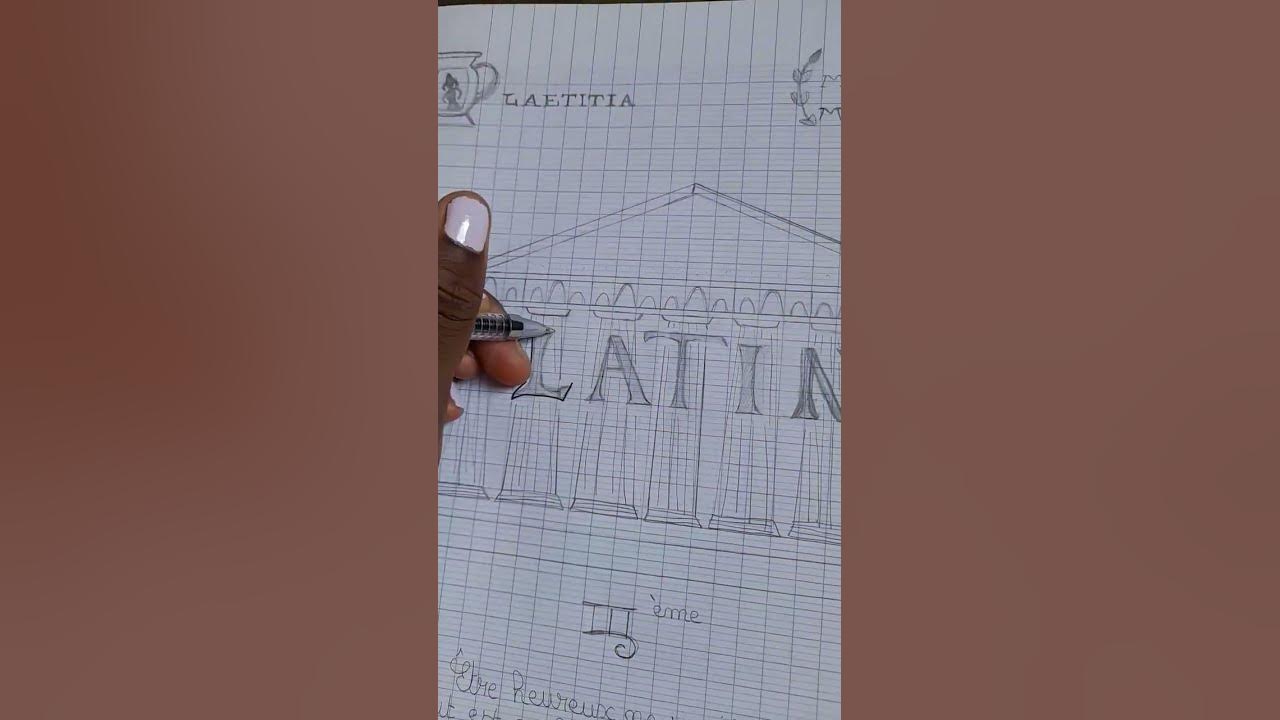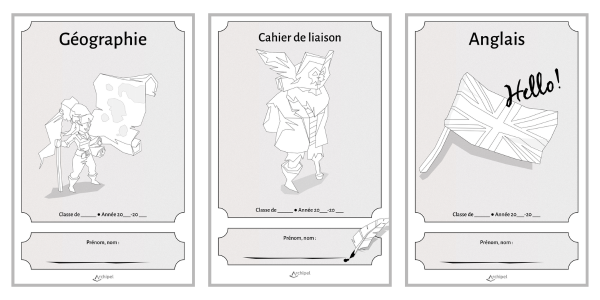Page De Garde Latin Facile

Ok, imagine this. I'm at the library, surrounded by dusty tomes (as one does, right?). This guy, clearly a student, is wrestling with his textbook, muttering something about "needing a *page de garde* for his Latin assignment." I swear, he looked like he was facing the gates of Hades itself. It got me thinking... Latin, cool. *Page de garde*, sounds fancy. Hard? Nah, let's break it down!
So, what exactly *is* a *page de garde*? Well, think of it as the cover letter for your essay, but, you know, *prettier* and in Latin (maybe... we'll get to that). It’s that first page that introduces your masterpiece. It’s got your name, the title of the work, the date, maybe your professor’s name...the usual. And for Latin? We can make it fun, *facile*, dare I say!
The Anatomy of a *Page de Garde* (Latin Style)
Don’t freak out! It's simpler than conjugating the irregular verbs. Here's a breakdown:
Essential Elements:
- Your Name: Obvious, right? But in Latin? Here's where it gets slightly interesting. If your name is already Latin-sounding (like Marcus or Lucia), jackpot! Just use it. Otherwise, simply translate your name the best you can – maybe use a dictionary or ask your friendly neighborhood Latin scholar (that's me, virtually speaking!). Example: John could become "Ioannes."
- Title of Your Work: This is the magnum opus itself! Make sure it's clear and accurately reflects what you've written. Keep it concise but informative. A good title sets the tone!
- Course/Professor: You gotta give credit where credit is due! Include the name of the course and your professor. Important: Double-check the correct Latin titles and forms of address for your professor (e.g., "Professori/Professorae N.N.").
- Date: Simple! Use the Latin way of writing dates. Check out online resources for how to do it properly. It's not as scary as it sounds, I promise. Think: "Kalendis Ianuariis, anno MMXXIV" for January 1st, 2024.
Optional (But Highly Recommended!) Flourishes:
- A Relevant Quote: A short, powerful quote from a classical author related to your topic can add a touch of *gravitas* (seriousness/importance). Cicero, Virgil, Seneca... the possibilities are endless! Make sure you cite it correctly!
- An Image: A simple, relevant image can make your *page de garde* visually appealing. A Roman statue, a map, a symbol... Use your imagination! Just don't go overboard and turn it into a meme collage (unless that's the point, in which case, go for it!).
- A Personal Motto (in Latin, of course!): Something short and sweet that reflects your approach to learning. Like "Ad astra per aspera" (A rough road leads to the stars) or "Dum spiro spero" (While I breathe, I hope). Extra points for originality!
Facile? Really? Yes!
The key is to not overthink it. You don't need to write a whole poem in Latin on your *page de garde*. A simple, clear, and well-presented page is much more effective than a confusing, overly ornate one. Remember, the goal is to introduce your work, not to show off your Latin skills (although, a little show-off is perfectly acceptable!).
Consider using online resources for translations and correct grammatical forms. There are plenty of helpful websites and Latin dictionaries available. And don’t be afraid to ask for help! Your professor, a tutor, or even that guy at the library might be able to offer some assistance.
So, next time you need a *page de garde* for your Latin assignment, remember this: it's an opportunity to add a touch of class and creativity to your work. Make it your own, keep it simple, and have fun with it! *Vale!* (Farewell!)















![Page De Garde Latin Facile [58] Locutions Latines Droit](https://i0.wp.com/www.superprof.be/blog/file/2018/02/termes-latins-en-francais-980x613.jpg)


